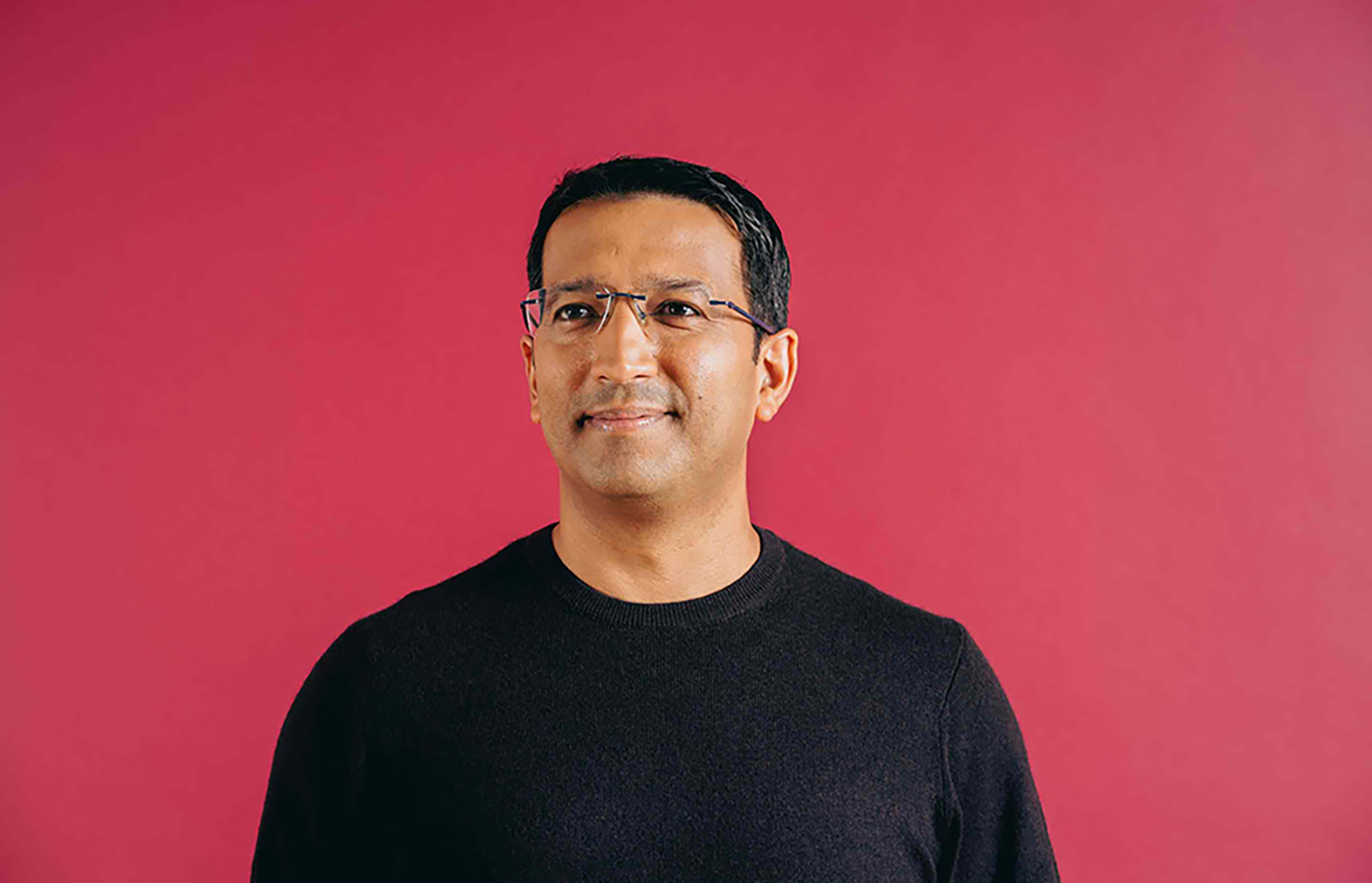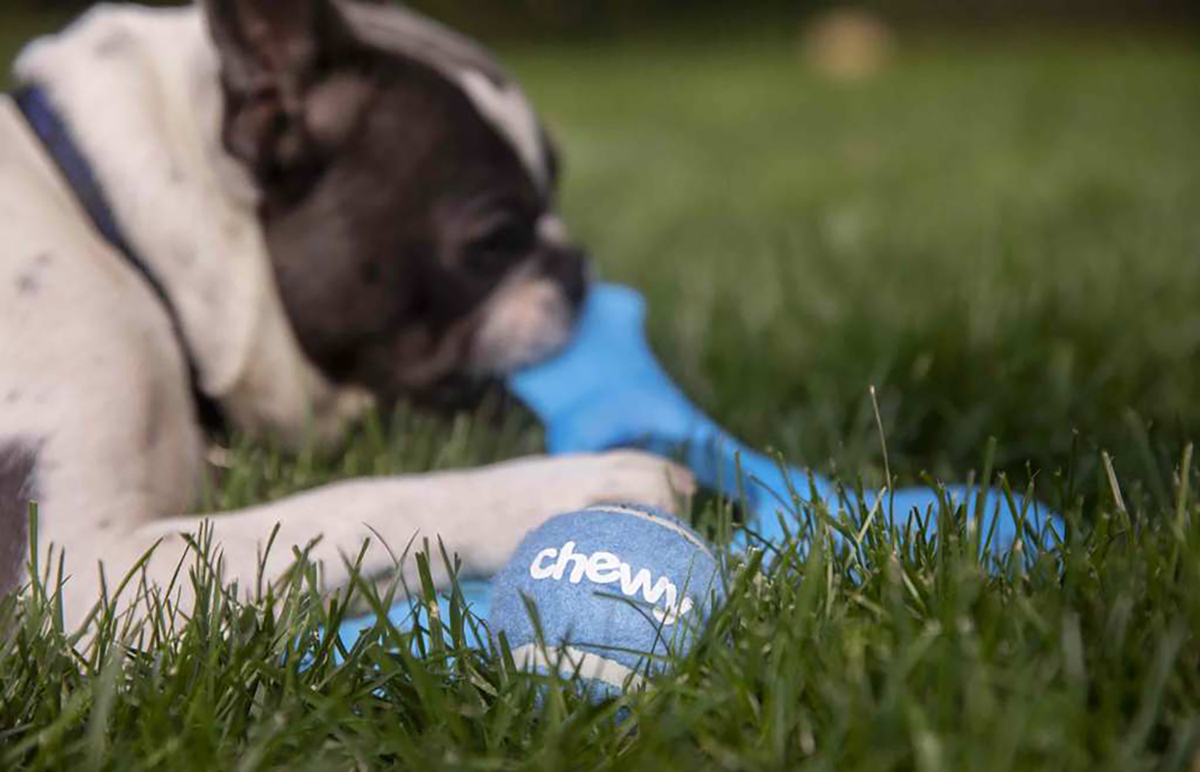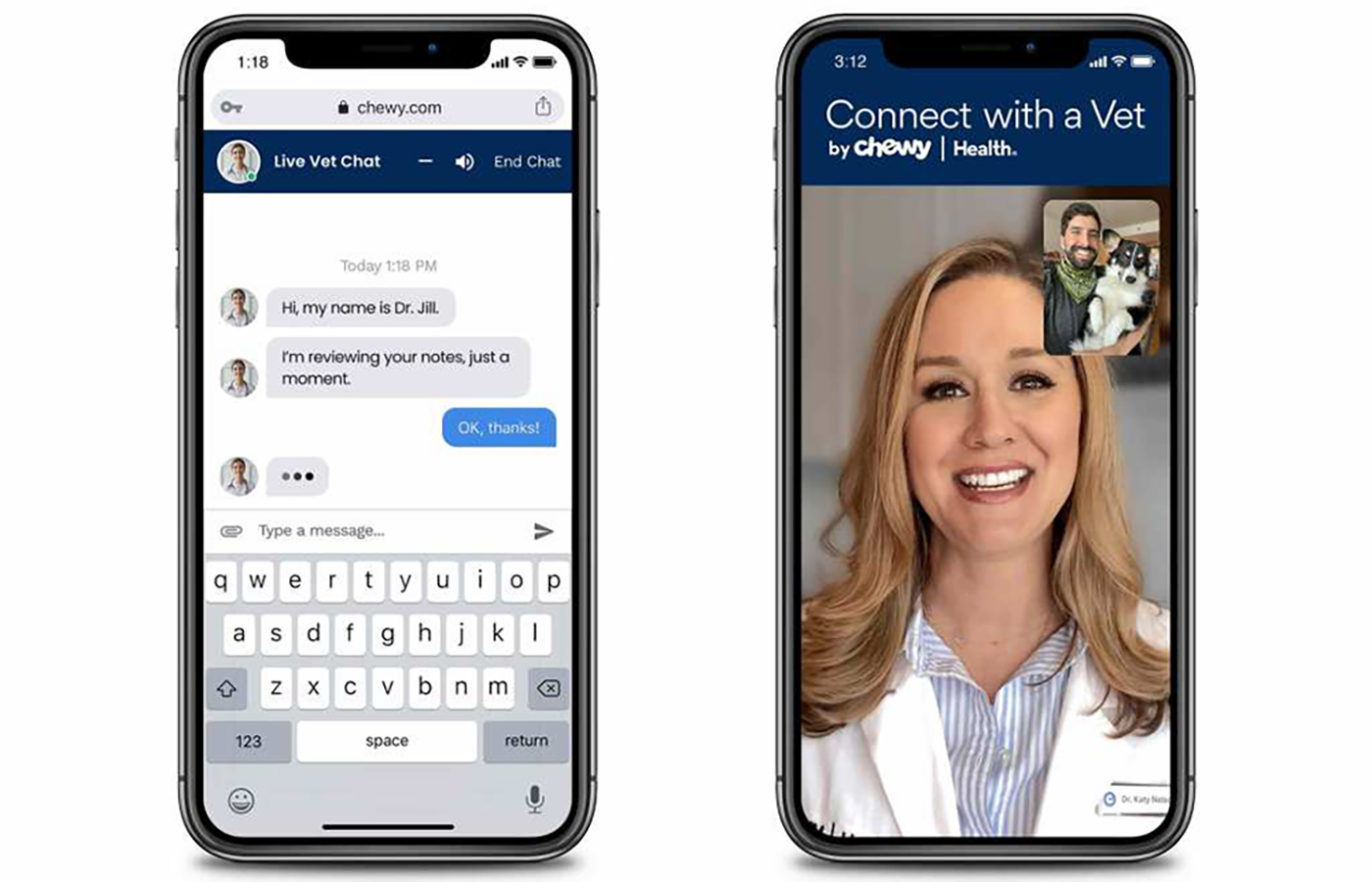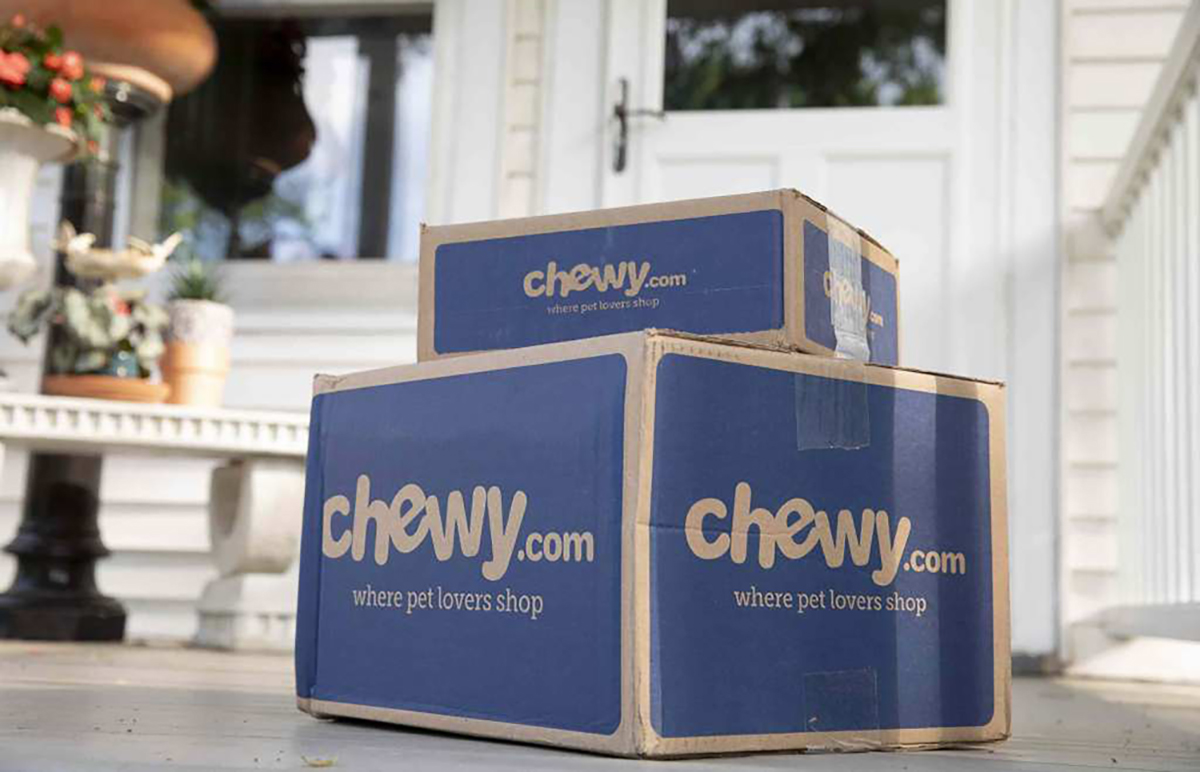
2018年,苏米特·辛格出任Chewy公司的首席执行官一职。自那时以来,这家引人注目的在线零售商进一步加强了自己在美国宠物产品市场的统治地位。但辛格仍然需要想尽办法打消华尔街对该公司能够实现可靠盈利的疑虑,而过往的成绩证明,要想实现这一目标并不容易。
不过Chewy也在不断逼近自己的目标。今年早些时候,在连续两个季度实现盈利之后,该公司在最近一个季度出现了小幅亏损。这种成绩看起来似乎不足为道,但如果与2018、2019两年该公司出现的巨额净亏损进行比较,你会发现该公司已经取得了长足进步。由于营销成本高昂,以及对电子商务基础设施投入的加大,该公司近年来每年的亏损均超过2.5亿美元。不过上述投资也带来了可观的营收回报:一方面,Chewy夯实了自己在市场上的主导地位,并继续快速增长;另一方面,由于营收增长47%、突破70亿美元大关,该公司于去年成功跻身《财富》美国500强之列。
作为亚马逊(Amazon)和戴尔(Dell)的昔日高管,辛格致力于在这家电商宠儿从小到大茁壮成长的过程中进一步提升其专业化程度。此外,他也没有忽视Chewy那些深得数千万宠物主人喜爱的贴心服务,例如,当发现有宠物死亡时,该公司依然会向客户发送个性化卡片表示慰问。
在接受《财富》杂志采访时,辛格谈到了自己在平衡增长与“以客户为中心”的文化时面临的挑战、该公司进军宠物健康和宠物医生服务的历程以及他从杰夫·贝佐斯只有“问号”的电子邮件中学到的经验。
为便于理解,问答内容有所删改。
把握新冠疫情带来的发展机遇
《财富》:新冠疫情的爆发让宠物收养数量大增,人们在这些毛茸茸的朋友身上花的钱也显著增加,在此背景之下,今年早些时候,Chewy首次实现连续两个季度盈利。你怎么能够确定Chewy可以实现可持续的盈利性增长?
苏米特·辛格:早前我们公司给自己制定的使命是“快速成长”和“快速适应”,这种对运营使命的陈述能够产生深远影响。在电子商务行业,你会发现很多公司只关注增长,认为只要可以增长,盈利就会水到渠成。但是,当你试图在追求利润的同时保持良好的操守时,此种做法并不能够做到“以客户为主导”。
当我接任首席执行官时,我首先就对我们的使命目标进行了调整,将其改成了“成为各地宠物主人和合作伙伴最信任、最便利的宠物产品公司”。

如今,我们的各类产品的规模已经接近开始时的三倍,也建成了完整的自有品牌产品线,打造出了自己的宠物医疗生态系统,并且还在不断完善之中。随着我们为宠物主人提供服务不断增加,我们也获得了更多的销售机会。因此,我们有信心可以延续这种势头。我认为,很多电商企业有些沉迷于增长之中,好像增长不会有尽头一样。
现在的消费者拥有无穷多的购物选择,你如何防止Chewy在他们的眼中变成单纯的工具?
秘诀就在于打造一种全心全意为顾客提供优质服务的企业文化。作为企业领导,我考虑最多的问题是:“随着公司的发展,我们如何保护‘以客户为导向’的企业文化?企业文化如何适应外界的变化速度?”如果我们停止创新,如果我们不再关心用户,如果我们不再为顾客提供卓越的服务体验,我们就必将走向失败,自尝苦果。
当企业超高速发展的时候,管控不足或者文化落后等问题常会成为企业的内生问题,而且这些问题可能只有在企业逐渐成熟之后才会显现。从你的角度来看,你怎么知道Chewy不会陷入同样的问题之中?
在企业发展的过程中确实会出现各种各样的不足和问题,成立初期的快速发展可能会掩盖一些问题,直到发展速度降下来之后才会被发现。我们在开展工作时会带着强烈的求知欲,并且也一直致力于加强认识、提升水平。顾客有时会得不到应有的服务,这时他们就会说:“嘿,我跟你们说了这些问题,然而你们却无动于衷。”你知道吗?碰到这种情况时,在大多数时候,他们会在一小时内得到我的回复。我是从亚马逊,或者说直接从杰夫·贝佐斯那里学到的这种工作方式,我觉得这是一种很棒的机制。你肯定听说过贝佐斯会发送那种只有“问号”的电子邮件,其作用就是促使公司优先处理客户投诉。其中蕴含的企业文化则是说,我们要趁早解决企业内部的“官僚主义”作风。
聚焦宠物医疗领域
Chewy正在大力推进宠物医疗领域的业务,包括在客户与宠物医生之间建立联系以及推动远程医疗建设。此项业务对于你们实现可持续增长为何如此重要?又将在你们与PetSmart和Petco Health & Wellness等线下宠物医疗机构的竞争中发挥怎样的作用?
我们发现,美国三分之一的宠物主人并不经常带宠物去看宠物医生。在医疗保健方面,遵守(医疗方案)存在巨大挑战。传统线下宠物医疗机构对宠物医疗的认识不能满足未来的发展需要。
因此,推进此项业务是因为我们认识到,宠物和宠物主人在其生命周期内不仅有购买食物、玩具或饰品的需求,他们对医疗健康、各种服务也都有切实的需求,而我们有责任满足他们在这些方面的需要。

那么你们为什么不需要开设门店或线下场地来提供宠物医疗保健等各种服务呢?就像一位分析师指出的那样,你们不可能在网上给狗狗梳理毛发。
我没有说过我们不需要开设门店。我说的是,到目前为止,开设门店并不是我们的工作重点,原因在于,我们70%的产品为通过订阅程序交付,而且客户也对我们交付产品的可靠性和可预测性表示满意。此外,此类客户不会突然冒出来说:“哦,天哪,我需要你们在两个小时内把猫砂给我送来。”他们的需求没有那么苛刻。我认为我们可以通过卓越的客户体验克服没有门店的劣势。
电子商务因其环境成本而受到越来越多的关注。你觉得这个行业能够做些什么来消除这些疑虑?
如你所知,Chewy是一家年轻的企业,就目前而言,我们已经在(环境)足迹最大的物流中心推进可持续发展方面的工作,我们也在借助太阳能照明、太阳能板、环保倡议等各种举措向高能效转型。考虑到我们实际发出的包裹数量,我们也在对我们的碳足迹进行分析。几年前,我们通过调整纸箱尺寸减少了约20%的纸箱足迹。现在,我们已经开始转向可持续、可生物降解的包装。我认为,在这个领域里,我们还有很多的工作要做。
“居家办公”和“回办公室办公”这一两难问题困扰着所有的首席执行官,对此你有何看法?
过去一年半的时间让我们对未来工作可能或者应该呈现的形态有了更深入的认识,可以说是大开眼界。像我这样从未进行过远程工作的企业领导也看到了远程工作的力量和优势。不过话虽如此,你知道,对于像我们这样的年轻企业而言,现场协作、现场创意、现场工作的效果并不能够完全被远程工作所取代。不过我们并未规定团队应该有多少天在办公室工作,而是让团队自己决定,看看哪种模式最适合相关团队的自身情况。
很多人担心,受到生产自动化的影响,许多工作会永远消失。你会如何劝慰他们,减轻他们的焦虑呢?
生产自动化提高了我们的工效和安全性。由于我们使用了高速运送分拣机,而无需拣货员每天行走数英里(分拣货物),我们公司的年化伤病率下降了60%,也让提高员工生产力成为了可能。作为顾客,你想要为自己收到的货品付钱,而不是各种浪费。我认为,这种争论与汽车最开始出现时那种争论实际上并无差别。创新孕育了卓越的商业模式,进而产生一种不同类型的服务和产业,而这种服务和产业反过来又会带来更多的就业机会,而不是减少就业机会。历史已经反复证明了这一点。

鉴于消费者对企业公民责任以及环境、社会和公司治理(ESG)越发关注,Chewy会如何更好地展现自己的社会行动主义?
新冠疫情期间,我们发现,收容所和救助社区在这场收养大潮中处于第一线的位置,但他们没有合适的资源,没有合适的工具,也没有合适的支持系统,比如市场营销、创意、分析等。因此,我们就从这里入手,告诉他们,我们会开发相应的工具,并将免费提供给他们使用。同时,我们也开始思考如何帮助宠物医生更好地运营他们的宠物医院,让他们可以更好地平衡工作和生活。
过去,Chewy的目标是成为最大的宠物产品零售商,你能够调和过去和现在的使命吗?
我们现在的使命(成为各地宠物主人和合作伙伴最信任、最便利的宠物产品公司)是我们工作的出发点,而成为最大的宠物产品零售商则是我们工作的结果。要想实现成为最大的零售商,我们就必须成为最值得信赖、最便利的企业。所以在我看来,二者实际上密切相关,并无冲突。(财富中文网)
译者:梁宇
审校:夏林
2018年,苏米特·辛格出任Chewy公司的首席执行官一职。自那时以来,这家引人注目的在线零售商进一步加强了自己在美国宠物产品市场的统治地位。但辛格仍然需要想尽办法打消华尔街对该公司能够实现可靠盈利的疑虑,而过往的成绩证明,要想实现这一目标并不容易。
不过Chewy也在不断逼近自己的目标。今年早些时候,在连续两个季度实现盈利之后,该公司在最近一个季度出现了小幅亏损。这种成绩看起来似乎不足为道,但如果与2018、2019两年该公司出现的巨额净亏损进行比较,你会发现该公司已经取得了长足进步。由于营销成本高昂,以及对电子商务基础设施投入的加大,该公司近年来每年的亏损均超过2.5亿美元。不过上述投资也带来了可观的营收回报:一方面,Chewy夯实了自己在市场上的主导地位,并继续快速增长;另一方面,由于营收增长47%、突破70亿美元大关,该公司于去年成功跻身《财富》美国500强之列。
作为亚马逊(Amazon)和戴尔(Dell)的昔日高管,辛格致力于在这家电商宠儿从小到大茁壮成长的过程中进一步提升其专业化程度。此外,他也没有忽视Chewy那些深得数千万宠物主人喜爱的贴心服务,例如,当发现有宠物死亡时,该公司依然会向客户发送个性化卡片表示慰问。
在接受《财富》杂志采访时,辛格谈到了自己在平衡增长与“以客户为中心”的文化时面临的挑战、该公司进军宠物健康和宠物医生服务的历程以及他从杰夫·贝佐斯只有“问号”的电子邮件中学到的经验。
为便于理解,问答内容有所删改。
把握新冠疫情带来的发展机遇
《财富》:新冠疫情的爆发让宠物收养数量大增,人们在这些毛茸茸的朋友身上花的钱也显著增加,在此背景之下,今年早些时候,Chewy首次实现连续两个季度盈利。你怎么能够确定Chewy可以实现可持续的盈利性增长?
苏米特·辛格:早前我们公司给自己制定的使命是“快速成长”和“快速适应”,这种对运营使命的陈述能够产生深远影响。在电子商务行业,你会发现很多公司只关注增长,认为只要可以增长,盈利就会水到渠成。但是,当你试图在追求利润的同时保持良好的操守时,此种做法并不能够做到“以客户为主导”。
当我接任首席执行官时,我首先就对我们的使命目标进行了调整,将其改成了“成为各地宠物主人和合作伙伴最信任、最便利的宠物产品公司”。
如今,我们的各类产品的规模已经接近开始时的三倍,也建成了完整的自有品牌产品线,打造出了自己的宠物医疗生态系统,并且还在不断完善之中。随着我们为宠物主人提供服务不断增加,我们也获得了更多的销售机会。因此,我们有信心可以延续这种势头。我认为,很多电商企业有些沉迷于增长之中,好像增长不会有尽头一样。
现在的消费者拥有无穷多的购物选择,你如何防止Chewy在他们的眼中变成单纯的工具?
秘诀就在于打造一种全心全意为顾客提供优质服务的企业文化。作为企业领导,我考虑最多的问题是:“随着公司的发展,我们如何保护‘以客户为导向’的企业文化?企业文化如何适应外界的变化速度?”如果我们停止创新,如果我们不再关心用户,如果我们不再为顾客提供卓越的服务体验,我们就必将走向失败,自尝苦果。
当企业超高速发展的时候,管控不足或者文化落后等问题常会成为企业的内生问题,而且这些问题可能只有在企业逐渐成熟之后才会显现。从你的角度来看,你怎么知道Chewy不会陷入同样的问题之中?
在企业发展的过程中确实会出现各种各样的不足和问题,成立初期的快速发展可能会掩盖一些问题,直到发展速度降下来之后才会被发现。我们在开展工作时会带着强烈的求知欲,并且也一直致力于加强认识、提升水平。顾客有时会得不到应有的服务,这时他们就会说:“嘿,我跟你们说了这些问题,然而你们却无动于衷。”你知道吗?碰到这种情况时,在大多数时候,他们会在一小时内得到我的回复。我是从亚马逊,或者说直接从杰夫·贝佐斯那里学到的这种工作方式,我觉得这是一种很棒的机制。你肯定听说过贝佐斯会发送那种只有“问号”的电子邮件,其作用就是促使公司优先处理客户投诉。其中蕴含的企业文化则是说,我们要趁早解决企业内部的“官僚主义”作风。
聚焦宠物医疗领域
Chewy正在大力推进宠物医疗领域的业务,包括在客户与宠物医生之间建立联系以及推动远程医疗建设。此项业务对于你们实现可持续增长为何如此重要?又将在你们与PetSmart和Petco Health & Wellness等线下宠物医疗机构的竞争中发挥怎样的作用?
我们发现,美国三分之一的宠物主人并不经常带宠物去看宠物医生。在医疗保健方面,遵守(医疗方案)存在巨大挑战。传统线下宠物医疗机构对宠物医疗的认识不能满足未来的发展需要。
因此,推进此项业务是因为我们认识到,宠物和宠物主人在其生命周期内不仅有购买食物、玩具或饰品的需求,他们对医疗健康、各种服务也都有切实的需求,而我们有责任满足他们在这些方面的需要。
那么你们为什么不需要开设门店或线下场地来提供宠物医疗保健等各种服务呢?就像一位分析师指出的那样,你们不可能在网上给狗狗梳理毛发。
我没有说过我们不需要开设门店。我说的是,到目前为止,开设门店并不是我们的工作重点,原因在于,我们70%的产品为通过订阅程序交付,而且客户也对我们交付产品的可靠性和可预测性表示满意。此外,此类客户不会突然冒出来说:“哦,天哪,我需要你们在两个小时内把猫砂给我送来。”他们的需求没有那么苛刻。我认为我们可以通过卓越的客户体验克服没有门店的劣势。
电子商务因其环境成本而受到越来越多的关注。你觉得这个行业能够做些什么来消除这些疑虑?
如你所知,Chewy是一家年轻的企业,就目前而言,我们已经在(环境)足迹最大的物流中心推进可持续发展方面的工作,我们也在借助太阳能照明、太阳能板、环保倡议等各种举措向高能效转型。考虑到我们实际发出的包裹数量,我们也在对我们的碳足迹进行分析。几年前,我们通过调整纸箱尺寸减少了约20%的纸箱足迹。现在,我们已经开始转向可持续、可生物降解的包装。我认为,在这个领域里,我们还有很多的工作要做。
“居家办公”和“回办公室办公”这一两难问题困扰着所有的首席执行官,对此你有何看法?
过去一年半的时间让我们对未来工作可能或者应该呈现的形态有了更深入的认识,可以说是大开眼界。像我这样从未进行过远程工作的企业领导也看到了远程工作的力量和优势。不过话虽如此,你知道,对于像我们这样的年轻企业而言,现场协作、现场创意、现场工作的效果并不能够完全被远程工作所取代。不过我们并未规定团队应该有多少天在办公室工作,而是让团队自己决定,看看哪种模式最适合相关团队的自身情况。
很多人担心,受到生产自动化的影响,许多工作会永远消失。你会如何劝慰他们,减轻他们的焦虑呢?
生产自动化提高了我们的工效和安全性。由于我们使用了高速运送分拣机,而无需拣货员每天行走数英里(分拣货物),我们公司的年化伤病率下降了60%,也让提高员工生产力成为了可能。作为顾客,你想要为自己收到的货品付钱,而不是各种浪费。我认为,这种争论与汽车最开始出现时那种争论实际上并无差别。创新孕育了卓越的商业模式,进而产生一种不同类型的服务和产业,而这种服务和产业反过来又会带来更多的就业机会,而不是减少就业机会。历史已经反复证明了这一点。
鉴于消费者对企业公民责任以及环境、社会和公司治理(ESG)越发关注,Chewy会如何更好地展现自己的社会行动主义?
新冠疫情期间,我们发现,收容所和救助社区在这场收养大潮中处于第一线的位置,但他们没有合适的资源,没有合适的工具,也没有合适的支持系统,比如市场营销、创意、分析等。因此,我们就从这里入手,告诉他们,我们会开发相应的工具,并将免费提供给他们使用。同时,我们也开始思考如何帮助宠物医生更好地运营他们的宠物医院,让他们可以更好地平衡工作和生活。
过去,Chewy的目标是成为最大的宠物产品零售商,你能够调和过去和现在的使命吗?
我们现在的使命(成为各地宠物主人和合作伙伴最信任、最便利的宠物产品公司)是我们工作的出发点,而成为最大的宠物产品零售商则是我们工作的结果。要想实现成为最大的零售商,我们就必须成为最值得信赖、最便利的企业。所以在我看来,二者实际上密切相关,并无冲突。(财富中文网)
译者:梁宇
审校:夏林
Since Sumit Singh became CEO of Chewy in 2018, the buzzy online retailer has only tightened its stranglehold on Americans' pet product spending. But Singh nonetheless has had to contend with Wall Street's doubts that the company can become reliably profitable—a goal that has proved elusive.
Chewy is getting closer. After reporting two straight quarters of profit earlier this year, it had a tiny loss in its most recent quarter. That might not seem like a huge win—until you compare it to the massive net losses Chewy racked up in 2018 and 2019. The company lost more than $250 million in each of those years, due to the astronomical costs of marketing and of beefing up its e-commerce infrastructure. Still, those investments have shown top-line returns: Chewy enjoys a dominant market share and continues to grow fast, landing a spot on the Fortune 500 last year as revenue rose 47% to pass the $7 billion mark.
Singh, a former Amazon and Dell executive, has worked to further professionalize the e-commerce darling as it moves from puppyhood into the next stage. And he's not losing sight of the thoughtful touches that have endeared Chewy to tens of millions of pet owners; the company still sends personalized cards to customers, for example, when it finds out a pet has died.
In an interview with Fortune, Singh talked about the challenges of balancing growth with a customer-centric culture, his company's forays into pet health and veterinary services, and what he learned from Jeff Bezos’s infamous question-mark emails.
This edited Q&A has been condensed for space and clarity.
Riding a pandemic boom
Fortune: The pandemic led to a lot of pet adoptions and more spending on our furry friends, helping Chewy to post, for the first time, two back-to-back profitable quarters earlier this calendar year. How can you be sure Chewy gets to a sustainable profitable growth trajectory?
Sumit Singh: Early on, we had a bit of a mission to "get big fast" and "to get fit fast." That is an important operating mission statement. In e-commerce, you see this a lot where companies only focus on growth, thinking that will automatically lead to profitability. But it's not a customer-led mission statement when you're trying to ensure that you remain disciplined in your pursuit of profit.
One of the earliest things that I did when I took over as CEO was to rewrite our mission statement. And that mission statement is to be the most trusted, convenient destination for pet parents and partners everywhere.
Today we have an assortment approaching three times that of when we started; we have a full proprietary branded line of products, we have a health care ecosystem that we're continuing to build. We have a lot more opportunity to get pet parents to spend more, because we have incrementally more choices to offer to them. That's what provides us the confidence that we're going to be able to sustain the momentum. I think a lot of e-commerce companies get kind of drunk on growth and then think that it'll go on forever.
How do you prevent Chewy from becoming simply a utility in the eyes of consumers when they have endless shopping options?
The secret sauce has to be an intentional and deliberate focus on building a culture that is maniacally focused on doing the right thing for the customer. What I spend the most amount of my time thinking about as a leader as we scale is, "How are we protecting customer orientation, as the company grows? How is the culture absorbing the rate of change?" If we stop innovating, if we stop caring, if we stop delivering a great experience, we will fail. And that will be on us.
When companies are growing super fast, problems like insufficient controls or poor culture can become part of their bones, and you may only see that later when they mature. From your point of view, how do you know Chewy won’t fall into that trap?
The defects and the cracks will occur, and early, fast momentum will actually hide them from you, up until it slows down. We approach our work with a deep intellectual curiosity and a constant desire to understand and improve. Customers sometimes don't get the service that they deserve and say, "Hey, here's what I'm trying to tell you guys and you're not acting against it." And you know what? In most cases they'll get a response from me within the hour. I learned that at Amazon, by the way, I learned directly from Jeff [Bezos], because I thought it was a wonderful mechanism. You’ve heard about the question mark e-mails that Jeff sends [to prioritize company responses to customer complaints]. And the culture piece of that is you’ve got to fight bureaucracy early on.
A focus on health
Chewy is pushing hard into health care, including connecting customers with veterinarians and telehealth. Why is this an important part of your plan to sustain growth, and how does this help you compete with brick-and-mortar rivals like PetSmart and Petco Health & Wellness that operate vet clinics?
We believe a third of pet parents in the U.S. do not take their pets to the vet at a recurring frequency. Compliance [with medication regimens] is a very big challenge in health care. The way health care is being thought about, traditionally in a legacy sense in physical brick and mortar, is not the future.
So this essentially recognizes that a pet and a pet parent in their life cycle have greater needs than just buying food or toys or accessories. There are real health care needs, there are real services needs, and we have an obligation to connect those.
So why don't you need stores or physical places to offer services, health care and otherwise? You can't groom dogs online, as one analyst pointed out.
I haven't said that we don't need stores. What I've said is that so far, stores aren’t a priority for us, and the reason is the following: When 70% of our sales are delivered via a subscription program, customers are telling us that we are delivering reliably and predictably. In addition, customers in this category aren't waking up and saying, "Oh shoot, I need my cat litter delivered in the next two hours." The customers in this category aren't yet demanding that. I don't look at not having stores as a disadvantage that we cannot overcome with a superior level of experience.
E-commerce is getting increasingly scrutinized for its environmental costs. What do you feel the industry and Chewy specifically can do to allay those misgivings?
Chewy, as you know, is a young company, and so far our sustainability efforts have started in the fulfillment center, where the [environmental] footprint is the largest, and we've transitioned to energy efficiency with solar lighting and panels and green initiatives and all of that. We're also right now analyzing our carbon footprint because of the number of packages that we actually send out. A couple years ago we reduced our box footprint by about 20% by readjusting our carton sizes. Now we're starting to move toward sustainable, biodegradable packaging. I think there's a lot more work that we need to do in this space.
Where do you stand on the work-from-home versus return-to-office dilemma challenging all CEOs?
This last year and half has been very eye-opening and enlightening in terms of what the future of work can look like and should look like. Leaders such as myself who'd never worked in a remote environment, we've seen the power and the advantage to productivity offsite. That being said, you know, for a younger company like ours, we believe that the power of on-site collaboration, on-site creativity, on-site productivity is not fully replaced by working fully remotely. But we are not being prescriptive on the number of days that teams come in, and we'll let the teams figure that out and see what models work for what teams.
A lot of people are worried about jobs disappearing for good to automation. What can you say to allay fears?
Automation has allowed us to improve ergonomics and safety. Our injury rate is down 60% on a year-over-year basis, and it's allowed us to improve productivity per employee because we're using high-speed shipping sorters rather than pickers walking several miles per day. As a customer, you want to pay for that box that arrives at your doorstep, not for all the wasted effort. I think this argument actually is the same as when automobiles first came. Innovation breeds superior business models that actually generate a different type of a service and industry that in turn generates greater employment, not less employment. That's been proven time and time again.
Given customers’ growing preoccupation with better corporate citizenship and ESG, what can Chewy do to show more social activism?
During the pandemic, what we did was recognize that the shelters and rescue communities were at the front lines of the adoption race. They didn't have the right kind of resources, they didn't have the right kind of tools, they didn't have the right kind of support system like marketing, creative, analytics. So we actually started there, and we said, “Hey, we'll develop it, you can use it for free.” We're similarly starting to think about what we can do with veterinarians right in being able to kind of help them run their office better and being able to give them a better work/life balance.
Can you reconcile your old mission statement, of becoming the biggest pet retailer, and your current one?
The mission statement that we have now—to be the most trusted convenient destination for pet parents and partners everywhere—that is the input into becoming the largest pet retailer, which is an output. The odds of reaching the ambition of becoming the largest is through becoming the most trusted and convenient. So these are closely related in my mind.






